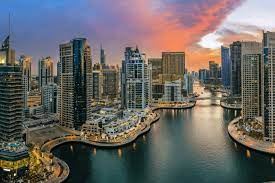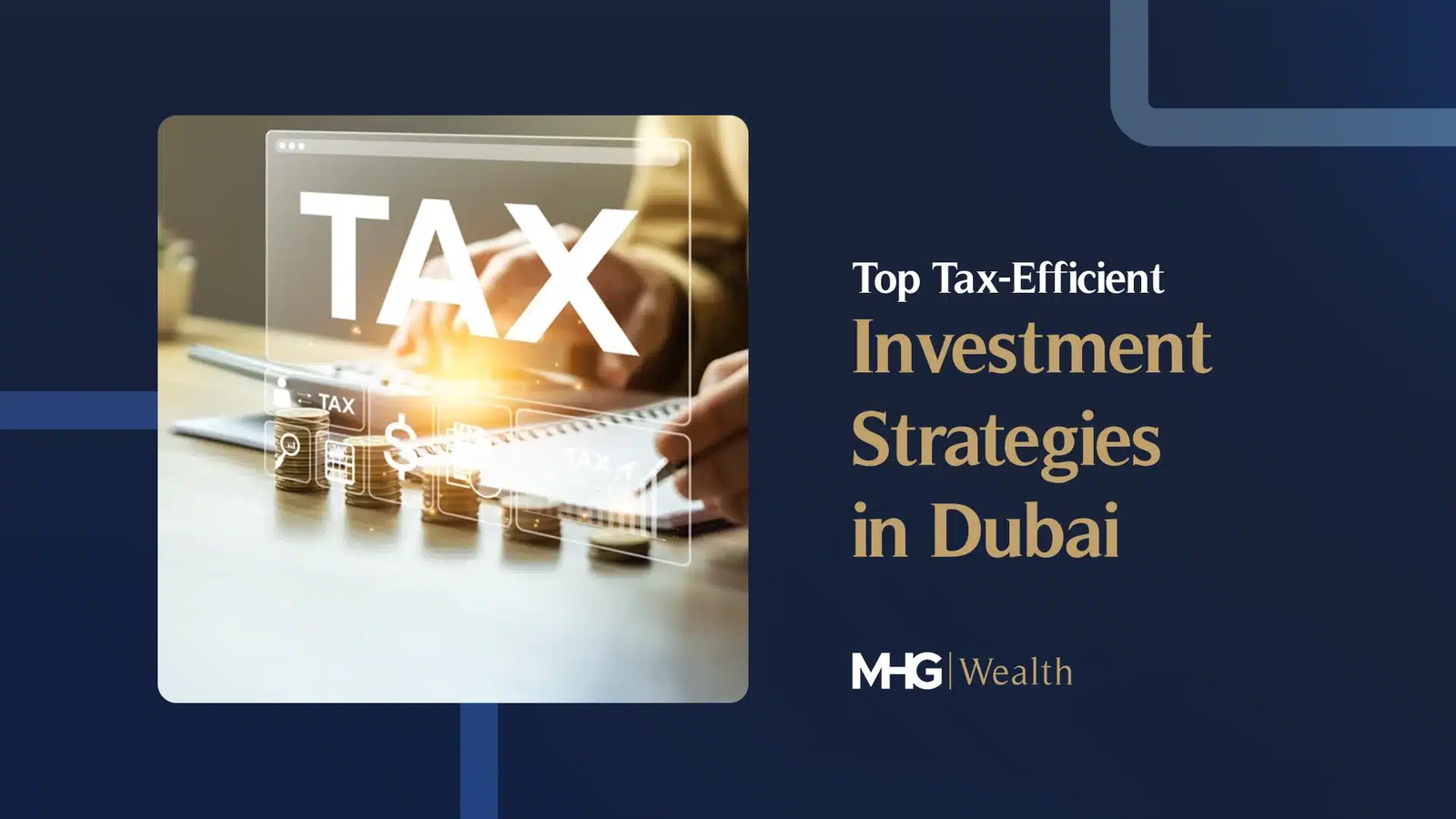Now Reading: How Corporate Tax Will Affect Island Property Holdings in Dubai
-
01
How Corporate Tax Will Affect Island Property Holdings in Dubai
How Corporate Tax Will Affect Island Property Holdings in Dubai

Table of Contents
Imagine lounging in your Palm Jumeirah villa, the Gulf’s waves lapping nearby, knowing you’ve structured your investment to minimize the impact of corporate tax. In 2025, Dubai’s island developments Palm Jumeirah, Palm Jebel Ali, and Dubai Islands remain a beacon for investors, offering 100% freehold ownership, a dirham pegged to the U.S. dollar for stability, and no personal income tax, capital gains tax, or annual property taxes for individuals. With 58% of buyers from countries like the UK, India, and Russia, Dubai recorded 94,000 property transactions in the first half of 2025.
Boasting 4-6% rental yields and 8-15% price appreciation, these islands outshine London (2-4%) or New York (3-4%). Properties over $545,000 qualify for a 10-year Golden Visa, while smaller units offer 2-year residency perks. However, the 9% corporate tax, introduced in 2023, and new 2025 regulations like the Domestic Minimum Top-up Tax (DMTT) affect investors holding properties through corporate entities.
This guide explores how corporate tax impacts projects like Palm Jumeirah Ocean Villas, Palm Jebel Ali Coastal Villas, Dubai Islands Horizon Villas, Haven Living, and Azura Residences, offering strategies to mitigate its effects.
Dubai’s Islands: A Tax-Light Haven with Corporate Caveats
Located 15-30 minutes from Dubai International Airport via Sheikh Zayed Road or water taxi, Palm Jumeirah, Palm Jebel Ali, and Dubai Islands span 50-80 kilometers of coastline, offering luxury villas, vibrant communities, and low 2-3% vacancy rates compared to 7-10% globally, driven by 25 million tourists and a 5% population surge.
Individual investors keep 100% of rental income ($48,000-$240,000 annually on a $1.2 million-$6 million property), versus $26,400-$144,000 elsewhere after taxes. Zero capital gains tax saves $60,000-$280,000 on a $300,000-$1 million profit, and no annual property taxes save $12,000-$120,000 yearly, unlike New York (1-2%) or London (council tax up to 2%). Residential purchases avoid 5% VAT ($60,000-$300,000), but corporate holdings face the 9% corporate tax unless exempt, impacting profitability for business-owned properties.
The tax-light allure feels like a warm embrace, but corporate tax needs careful navigation.
Corporate Tax: The Basics for Island Holdings
Introduced in 2023, the 9% corporate tax applies to businesses, including those holding real estate, unless they qualify for exemptions. A company leasing a $4 million Palm Jumeirah villa yielding $160,000-$240,000 annually faces a 9% tax ($14,400-$21,600), reducing net income to $145,600-$218,400. For a $2 million Haven Living apartment yielding $80,000-$120,000, the tax is $7,200-$10,800, leaving $72,800-$109,200.
Individual ownership avoids this entirely, keeping 100% of income tax-free, saving $7,200-$21,600 annually. Corporate investors can mitigate this by securing Qualified Free Zone Person (QFZP) status in areas like Dubai Multi Commodities Centre (DMCC), saving $12,240-$61,200 with setup costs of $2,000-$5,000. Small business relief waives corporate tax for revenues under $816,000 until December 31, 2026, ideal for smaller corporate portfolios.
Corporate tax feels like a hurdle, but exemptions offer a clear path forward.
New Tax Rule 1: Domestic Minimum Top-up Tax (DMTT)
Effective January 1, 2025, the DMTT imposes a 15% tax on multinational enterprises (MNEs) with global revenues over €750 million ($793 million). A corporate entity leasing 10 properties across Palm Jumeirah and Dubai Islands with $1 million in income faces a 15% tax ($150,000), reducing net income to $850,000. Smaller entities with revenues below $816,000 are unaffected, and QFZP status avoids DMTT, saving $12,240-$61,200 on $122,400-$612,000 in income. Individual investors dodge this entirely, making personal ownership a preferred strategy for most. For MNEs, restructuring to qualify for QFZP or holding properties individually minimizes this tax’s impact.
The DMTT feels like a corporate tweak, sparing smaller investors’ wealth.
New Tax Rule 2: Qualifying Investment Fund (QIF) Updates
Cabinet Decision No. 34 of 2025, effective Q2 2025, refines QIF and Real Estate Investment Trust (REIT) rules. QIFs remain exempt from corporate tax if real estate income is below 10% of total income and ownership is diversified. If a QIF earns $1 million, with $200,000 from real estate, 80% ($160,000) faces 9% tax ($14,400). Restructuring costs $1,500-$4,000. Corporate investors holding island properties through QIFs must ensure real estate income stays below 10% to avoid tax, while individual investors bypass these rules entirely, enjoying tax-free gains. Careful portfolio structuring is key for corporate entities.
QIF updates feel like a strategic puzzle for corporate portfolios.
Strategy 1: Hold Properties Personally to Avoid Corporate Tax
The simplest way to avoid corporate tax is holding properties as an individual. A $4 million Palm Jebel Ali villa yielding $160,000-$240,000 annually incurs no corporate tax, saving $14,400-$21,600 compared to a company-owned property. A $2 million Azura Residences apartment yielding $80,000-$120,000 saves $7,200-$10,800. Individual ownership also avoids DMTT and QIF complexities, making it ideal for most investors. If corporate ownership is required for legal or financial reasons, secure QFZP status to eliminate the 9% tax and DMTT, saving $20,400-$61,200 annually with minimal setup costs.
Personal ownership feels like a direct path to tax-free riches.
Strategy 2: Leverage QFZP Status for Corporate Holdings

For corporate investors, QFZP status in free zones like DMCC is a game-changer. A company leasing a $4 million Horizon Villas property yielding $160,000-$240,000 avoids the 9% corporate tax ($14,400-$21,600) and DMTT ($24,000-$36,000), saving $20,400-$61,200 annually. Setup costs ($2,000-$5,000) are minimal compared to tax savings. QFZP requires maintaining a free zone entity, filing annual audits ($1,000-$3,000), and ensuring compliance with UAE regulations. This strategy is ideal for corporate investors with multiple properties across Palm Jumeirah, Palm Jebel Ali, or Dubai Islands, preserving profitability.
QFZP status feels like a golden key to corporate tax savings.
Strategy 3: Utilize Small Business Relief
Small business relief, available until December 31, 2026, waives corporate tax for businesses with revenues under $816,000. A corporate entity leasing a $2 million Haven Living apartment yielding $80,000-$120,000 avoids the 9% tax ($7,200-$10,800), keeping net income at $80,000-$120,000. This relief applies across all island projects, making it a temporary but powerful tool for smaller corporate portfolios. Investors must track revenue and file compliance documents ($500-$1,500) to qualify. After 2026, transitioning to QFZP or individual ownership ensures continued tax efficiency.
Small business relief feels like a short-term gift for corporate investors.
Strategy 4: Optimize Rental Strategy for Tax Efficiency
Corporate investors can minimize tax exposure by optimizing rental strategies. Short-term rentals in Palm Jumeirah boost yields by 15-20% ($12,000-$48,000 on a $2 million-$4 million property), but require VAT registration if revenue exceeds $102,041, charging 5% ($4,000-$12,000) while allowing credits on expenses like DTCM fees ($408-$816). Long-term leases, ideal for Palm Jebel Ali and Dubai Islands, need only Ejari registration ($54-$136), avoiding VAT unless revenue hits $102,041. A $4 million Ocean Villas property yielding $160,000-$240,000 incurs $8,000-$12,000 in VAT but allows $2,000-$5,000 in credits. A property manager ($5,000-$25,000 annually) ensures compliance, avoiding fines up to $136,125.
Smart rentals feel like a tailored boost to corporate profits.
Palm Jumeirah Ocean Villas: Luxury with Corporate Tax Considerations
Ocean Villas by Nakheel, set for completion in Q2 2025, offer 4-6 bedroom villas ($3 million-$6 million) with 4-6% rental yields and 8-12% price growth. A corporate entity leasing a $4 million villa yielding $160,000-$240,000 faces a 9% tax ($14,400-$21,600), reducing net income to $145,600-$218,400. QFZP status saves $40,800-$61,200, and individual ownership avoids tax entirely, saving $72,000-$96,000 compared to taxed markets. No property taxes save $40,000-$80,000 yearly, and VAT exemption saves $200,000. Transfer costs include a 4% DLD fee ($160,000), 2% broker fee ($80,000), and title deed issuance ($136-$272). Maintenance fees are $15,000-$25,000, with a 5% municipality fee ($8,000-$12,000). U.S. investors deduct depreciation ($72,727-$109,091), saving up to $36,364. Golden Visa eligibility applies.
The beachfront elegance feels like a tax-smart masterpiece with planning.
Palm Jebel Ali Coastal Villas: Eco-Friendly Tax Challenges
Coastal Villas by Nakheel, set for completion in Q3 2025, offer 4-6 bedroom villas ($2.72 million-$5.44 million) with 4-6% rental yields and 10-15% price growth. A corporate entity leasing a $3 million villa yielding $120,000-$180,000 faces a 9% tax ($10,800-$16,200), reducing net income to $109,200-$163,800. QFZP saves $30,600-$45,900, and individual ownership avoids tax, saving $54,000-$72,000. No property taxes save $30,000-$60,000 yearly, and VAT exemption saves $150,000. Transfer costs include a 4% DLD fee ($108,900-$217,800), 2% broker fee ($54,450-$108,900), and title deed issuance ($136-$272). Maintenance fees are $12,000-$20,000, with a 5% municipality fee ($6,000-$9,000). U.S. investors deduct depreciation ($54,545-$98,182), saving up to $34,091. Golden Visa eligibility applies.
The eco-friendly charm feels like a tax-efficient retreat with strategy.
Dubai Islands Horizon Villas: Modern Tax Considerations
Horizon Villas by a leading developer, set for completion in Q2 2026, offer 4-6 bedroom villas ($2.72 million-$5.44 million) with 4-6% rental yields and 8-12% price growth. A corporate entity leasing a $3 million villa yielding $120,000-$180,000 faces a 9% tax ($10,800-$16,200), reducing net income to $109,200-$163,800. QFZP saves $30,600-$45,900, and individual ownership avoids tax, saving $54,000-$72,000.
No property taxes save $30,000-$60,000 yearly, and VAT exemption saves $150,000. Transfer costs include a 4% DLD fee ($108,900-$217,800), 2% broker fee ($54,450-$108,900), and title deed issuance ($136-$272). Maintenance fees are $12,000-$20,000, with a 5% municipality fee ($6,000-$9,000). U.S. investors deduct depreciation ($54,545-$98,182), saving up to $34,091. Golden Visa eligibility applies.
The waterfront serenity feels like a modern tax-light gem.
Haven Living: Affordable Corporate Tax Impact
Haven Living by Metac Properties, set for completion in Q4 2025, offers 1-3 bedroom apartments ($475,750-$1.2 million) with 4-6% rental yields and 8-12% price growth. A corporate entity leasing a $1.2 million apartment yielding $48,000-$72,000 faces a 9% tax ($4,320-$6,480), reducing net income to $43,680-$65,520. QFZP saves $12,240-$18,360, and individual ownership avoids tax, saving $21,600-$28,800.
No property taxes save $12,000-$24,000 yearly, and VAT exemption saves $60,000. Transfer costs include a 4% DLD fee ($48,000), 2% broker fee ($24,000), and title deed issuance ($136-$272). Maintenance fees are $5,000-$10,000, with a 5% municipality fee ($2,400-$3,600). U.S. investors deduct depreciation ($21,818-$43,636), saving up to $17,455. Golden Visa eligibility applies for properties over $545,000.
The waterfront charm feels like a budget-friendly tax haven.
Azura Residences: Urban Tax Considerations
Azura Residences by Invest Group Overseas, set for completion in Q2 2026, offers 1-4 bedroom apartments ($680,625-$2 million) with 4-6% rental yields and 8-12% price growth. A corporate entity leasing a $2 million apartment yielding $80,000-$120,000 faces a 9% tax ($7,200-$10,800), reducing net income to $72,800-$109,200. QFZP saves $20,400-$30,600, and individual ownership avoids tax, saving $36,000-$48,000.
No property taxes save $20,000-$40,000 yearly, and VAT exemption saves $100,000. Transfer costs include a 4% DLD fee ($80,000), 2% broker fee ($40,000), and title deed issuance ($136-$272). Maintenance fees are $6,000-$12,000, with a 5% municipality fee ($4,000-$6,000). U.S. investors deduct depreciation ($36,364-$72,727), saving up to $24,545. Golden Visa eligibility applies.
The urban waterfront feels like a sleek tax-light oasis.
Additional Tax Planning Tips
Negotiate DLD fee splits to save $24,000-$80,000 on a $1.2 million-$4 million property. Use gift transfers to reduce DLD to 0.125%, saving $46,500-$155,000. Recover 5% VAT on developer fees ($20,000-$80,000) via FTA registration ($500-$1,000). Leverage double taxation treaties with 130+ countries to avoid foreign taxes, saving $36,000-$96,000. Hire a property manager ($5,000-$25,000 annually) and tax professionals ($1,000-$3,000) to ensure compliance and avoid fines up to $136,125. These steps complement corporate tax strategies for maximum savings.
These tips feel like a roadmap to tax-smart wealth.
Navigating Risks in 2025
A projected oversupply of 41,000 units may slow price growth, with Palm Jumeirah less affected due to its prestige. Mitigate by choosing trusted developers like Nakheel or Invest Group Overseas, verifying escrow compliance under the 2025 Oqood system, and targeting low-vacancy projects (2-3%). Ensure QFZP and VAT compliance to avoid fines. Short-term rentals in Palm Jumeirah leverage tourists, while Palm Jebel Ali and Dubai Islands suit long-term leases. Proximity to key hubs drives value.
Why Corporate Tax Won’t Derail Island Investments
While the 9% corporate tax and DMTT impact corporate holdings, strategies like individual ownership, QFZP status, small business relief, and QIF structuring minimize their effect. With no personal income tax, capital gains tax, or property taxes, saving $12,000-$280,000 annually, and 4-6% yields, 8-15% price growth, and Golden Visa perks, Palm Jumeirah Ocean Villas, Palm Jebel Ali Coastal Villas, Horizon Villas, Haven Living, and Azura Residences remain vibrant, tax-efficient havens in 2025.
read more: Top tax Strategies for Investing in Dubai’s Waterfront Developments






















